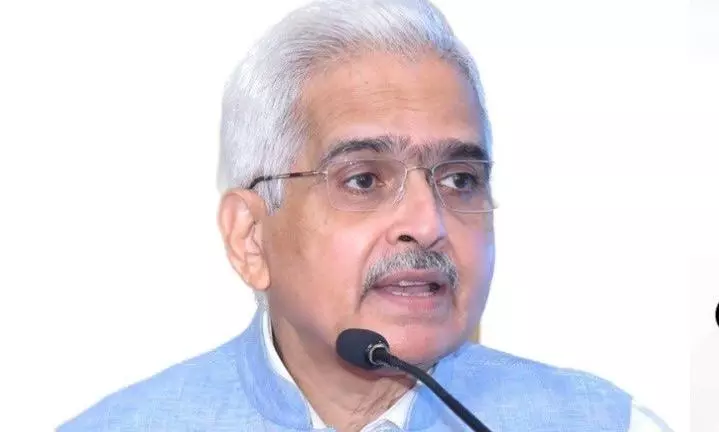Global Financial Market Regulators Need to be Vigilant About Misuse of AI & ML Says RBI Gov

Mumbai:The Reserve Bank of India Governor Shaktikanta Das on Thursday said that while inflation in India has moderated from its highs in 2022, recurring food price shocks and renewed flash points on the geo-political front pose challenges to the ongoing disinflation process. Das said that the RBI remains “vigilant to navigate through the last mile of disinflation as it is often the most difficult part of the journey.”
Speaking at the 59th SEACEN Governors’ conference here Das said, “We firmly recognise that stable and low inflation will provide the necessary bedrock for sustainable economic growth.” The Reserve Bank of India is the current Chair of the SEACEN (South East Asian Central Banks) forum.
He said that the Indian economy has successfully navigated through multiple challenges and emerged as the fastest growing large economy due to the prudent monetary and fiscal policies. India’s coordinated policy response in the face of a series of adverse shocks can be a good template for the future.
“While monetary policy worked on anchoring inflation expectations and quelling demand-pull pressures, supply side interventions by the government alleviated supply-side pressures and moderated cost-push inflation. Effective fiscal-monetary coordination was at the core of India’s success.”
The Reserve Bank projects the Indian economy to grow by 7 percent during 2024-25, marking the fourth successive year of growth at or above 7 per cent. Inflation has moderated from the highs of the summer of 2022, said Das.
Inflation based on the Consumer Price Index (CPI) eased to a three month low of 5.1 per cent in January from 5.7 per cent in December largely driven by lower food prices. However core inflation dropped to a 50 month low to 3.5 per cent. Despite easing in January, the overall food inflation remains elevated.
In his address, Das said that the global economy stands at a crossroads with challenges remaining in plenty, but new opportunities also knocking at the door. He suggested five possible policy choices for the future course of the global economy.
First was to chalk out an effective strategy for global cooperation and coordination to deal with multiple challenges afflicting the global economy. “In this regard, agreements on a “critical minerals corridor” and a “food corridor” for safeguarding food security are necessary. Such arrangements have to be fair and equitable.” His second suggestion was to develop cooperation in climate change where no country can devise strategies on its own. The other suggestions were to improve infrastructure, utilising Digital Public Infrastructure (DPI) for advancing financial inclusion and productivity gains through cost reductions, and using new technological developments like artificial intelligence (AI) and machine learning (ML) to bring about significant improvements in efficiency and productivity of businesses.
“Necessary safeguards, however, need to be put in place to prevent the misuse of technology. In particular, global financial market regulators need to be vigilant about the possible misuse of AI and ML in perpetrating financial fraudulence,” Das said.

